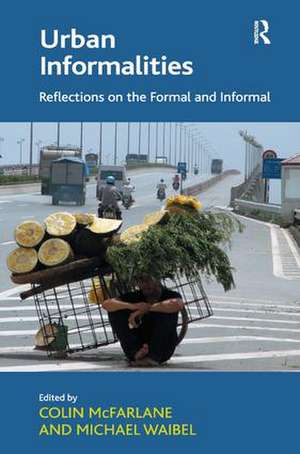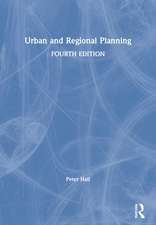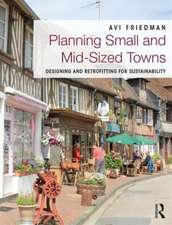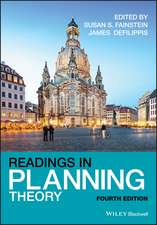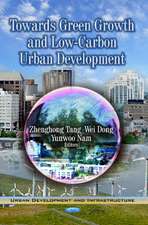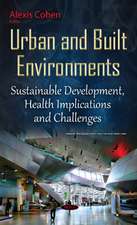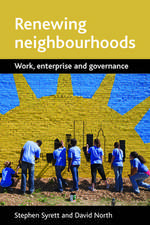Urban Informalities: Reflections on the Formal and Informal
Autor Michael Waibel Editat de Colin McFarlaneen Limba Engleză Hardback – 27 iul 2012
| Toate formatele și edițiile | Preț | Express |
|---|---|---|
| Paperback (1) | 489.26 lei 43-57 zile | |
| Taylor & Francis – 28 noi 2016 | 489.26 lei 43-57 zile | |
| Hardback (1) | 1055.84 lei 43-57 zile | |
| Taylor & Francis – 27 iul 2012 | 1055.84 lei 43-57 zile |
Preț: 1055.84 lei
Preț vechi: 1287.60 lei
-18% Nou
Puncte Express: 1584
Preț estimativ în valută:
202.04€ • 211.47$ • 168.16£
202.04€ • 211.47$ • 168.16£
Carte tipărită la comandă
Livrare economică 31 martie-14 aprilie
Preluare comenzi: 021 569.72.76
Specificații
ISBN-13: 9781409441328
ISBN-10: 1409441326
Pagini: 216
Dimensiuni: 156 x 234 x 14 mm
Greutate: 0.49 kg
Ediția:1
Editura: Taylor & Francis
Colecția Routledge
Locul publicării:Oxford, United Kingdom
ISBN-10: 1409441326
Pagini: 216
Dimensiuni: 156 x 234 x 14 mm
Greutate: 0.49 kg
Ediția:1
Editura: Taylor & Francis
Colecția Routledge
Locul publicării:Oxford, United Kingdom
Cuprins
Contents: Introduction: the informal-formal divide in context, Colin McFarlane and Michael Waibel; Juggling with formality and informality in housing: some lessons from the new South Africa, Astrid Ley; Urban informality reconsidered in a neo-liberal context: Gecekondu, identity, poverty and Islamic philanthropism in Turkey, Neslihan Demirtas-Milz; 'Informal moral economies' and urban governance in India, Ajay Gandhi; Bajji on the beach: middle-class food practices in Chennai's New Beach, Pushpa Arabindoo; Informality as a strategy: street traders in Hanoi facing constant insecurity, Sandra Kurfürst; Informality as borrowed security: contested food markets in Dhaka, Bangladesh, Marcus Keck; Hip-hop and sociality in a Brazilian favela, Rita de Cácia Oenning da Silva and Kurt Shaw; The mode of informal urbanisation: reconciling social and statutory regulation in urban land management, Volker Kreibich; Conceptualising informality: some thoughts on the way towards generalisation, Uwe Altrock; Index.
Notă biografică
Colin McFarlane, Department of Geography, Durham University, UK and Michael Waibel, Department of Geography, Hamburg University, Germany
Recenzii
'Providing vivid and colourful insight, this volume of interdisciplinary research on the ambiguous realities of urban informality discusses and questions the very notion of the formal-informal divide ... the richness of this book lies in its drawing together of an international group of researchers from a variety of disciplines working on quite distinct notions of urban (in-)formalities in Africa, Asia, Latin America and Europe.' International Journal of Urban and Regional Research 'Urban Informalities will be of interest to anyone willing to learn more about this growing debate, and it provides many informative, articulated and stimulating contributions on the topic'. Urban Geography Research Group
Descriere
This book produced by a group of interdisciplinary and international researchers working on a wide variety of cities throughout Asia, Latin America and Europe, addresses, rethinks and, in some cases, abandons the notions of formal and informal urbanism. It critically interrogates both the ways in which 'informal' and 'formal' are put to work in the governing and politicisation of cities, and their conceptual strengths and weaknesses.
